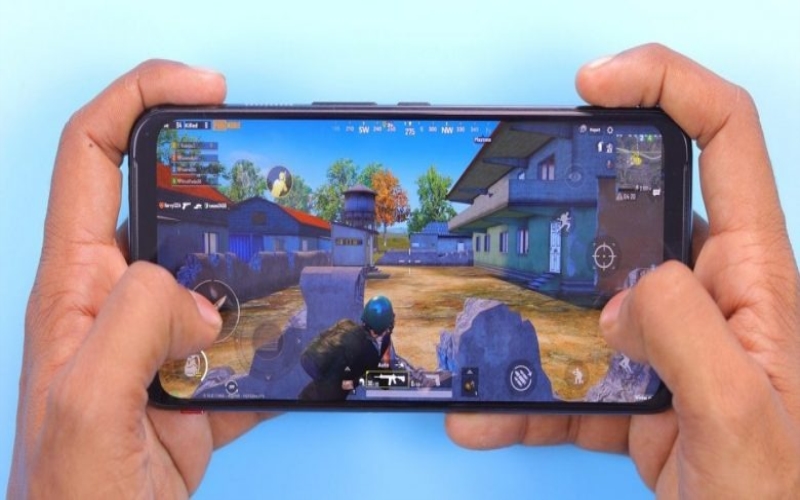Introduction
Online gaming has become a pervasive form of entertainment and social interaction, with millions of individuals worldwide engaging in various genres from MMORPGs to competitive shooters. While gaming offers opportunities for enjoyment, skill development, and social connection, it also raises concerns about its potential impact on mental health. This article explores the nuanced effects of online gaming on mental well-being, examining both the positive benefits and negative consequences that can arise from prolonged gaming sessions.
Positive Effects of Online Gaming on Mental Health
1. Social Interaction and Community Building
Online gaming platforms provide a virtual space for players to connect, collaborate, and build relationships with peers from diverse backgrounds. slot online Positive aspects include:
Social Support: Gaming communities offer emotional support and camaraderie, fostering a sense of belonging and friendship among players.
Teamwork and Cooperation: Cooperative gameplay encourages teamwork, communication, and problem-solving skills, promoting social bonding and mutual respect.
2. Cognitive Benefits and Skill Development
Engaging in challenging gameplay can stimulate cognitive functions and enhance skill development in several ways:
Problem-Solving Skills: Many games require players to strategize, plan ahead, and adapt to changing scenarios, improving cognitive flexibility and decision-making abilities.
Hand-Eye Coordination: Action-oriented games can improve reflexes, hand-eye coordination, and spatial awareness through fast-paced gameplay and precise control requirements.
3. Stress Relief and Mood Enhancement
For some individuals, gaming serves as a therapeutic outlet for stress relief and mood enhancement:
Escapism: Immersive game worlds provide an escape from real-life stressors, allowing players to unwind and relax in a controlled virtual environment.
Achievement and Reward Systems: Accomplishing in-game goals, leveling up characters, and earning rewards can boost self-esteem and feelings of accomplishment.
4. Educational and Learning Opportunities
Certain games incorporate educational breakingtimes elements, historical contexts, or strategic thinking, offering opportunities for intellectual stimulation and learning:
Historical Accuracy: Games set in historical periods or inspired by real-world events can educate players about cultures, societies, and historical events.
Strategic Thinking: Strategy games require players to analyze situations, formulate plans, and anticipate outcomes, promoting critical thinking and strategic planning skills.
Negative Effects of Online Gaming on Mental Health
1. Potential for Addiction and Compulsive Behavior
Excessive gaming can lead to problematic behaviors and addiction-like symptoms, impacting daily life and mental well-being:
Time Management: Spending excessive hours gaming may lead to neglect of responsibilities, relationships, and self-care activities.
Withdrawal Symptoms: Some individuals experience withdrawal symptoms such as irritability, restlessness, or anxiety when unable to access gaming.
2. Social Isolation and Relationship Strain
While gaming can facilitate social connections, it may also contribute to social isolation and strained relationships:
Isolation: Spending prolonged periods gaming alone can reduce face-to-face interactions and social engagement outside of the gaming environment.
Conflict: Excessive gaming may lead to conflicts with family members, friends, or partners who perceive it as a priority over personal relationships.
3. Negative Impact on Sleep Patterns
Late-night gaming sessions and screen exposure can disrupt sleep patterns and contribute to sleep-related problems:
Sleep Disturbances: Blue light emitted from screens can interfere with melatonin production, leading to difficulty falling asleep or poor sleep quality.
Fatigue and Daytime Functioning: Inadequate sleep due to gaming can result in daytime fatigue, decreased alertness, and impaired cognitive performance.
4. Risk of Physical Health Issues
Sedentary gaming habits and prolonged screen time may contribute to physical health concerns:
Sedentary Lifestyle: Extended periods of sitting during gaming sessions can contribute to a sedentary lifestyle, increasing the risk of obesity and related health issues.
Eye Strain: Prolonged exposure to screens may cause eye strain, dry eyes, and discomfort, impacting visual health over time.
Balancing Online Gaming and Mental Well-being
1. Setting Boundaries and Moderation
Establishing healthy gaming habits is essential for maintaining mental well-being:
Schedule Playtime: Set specific times for gaming to avoid excessive play sessions and prioritize other activities.
Take Breaks: Incorporate regular breaks during gaming sessions to rest your eyes, stretch, and engage in physical activity.
2. Maintaining Perspective and Awareness
Maintaining self-awareness and perspective helps mitigate potential negative effects:
Monitor Behavior: Be mindful of changes in mood, behavior, or daily routines that may indicate excessive gaming or negative impact on mental health.
Seek Support: Reach out to friends, family, or mental health professionals if gaming habits become problematic or affect daily functioning.
6. Diversifying Activities and Interests
Balance gaming with other hobbies and activities to promote overall well-being and reduce reliance on gaming for emotional fulfillment:
Explore New Interests: Discover new hobbies, sports, or creative pursuits to broaden your interests and maintain a balanced lifestyle.
Socialize Offline: Nurture face-to-face relationships, participate in community events, or join clubs to foster social connections outside of gaming.
Conclusion
Online gaming’s impact on mental health is multifaceted, encompassing both positive benefits and potential challenges depending on individual habits and circumstances. While gaming can enhance cognitive skills, provide social interaction, and offer stress relief, it also poses risks such as addiction, social isolation, and disrupted sleep patterns. By fostering awareness, setting boundaries, and maintaining a balanced approach to gaming and other activities, individuals can harness the positive aspects of online gaming while mitigating potential negative effects on mental well-being. As gaming technology continues to evolve, understanding and managing the impact of online gaming on mental health remains crucial for promoting healthy habits and overall well-being in gamers of all ages.


